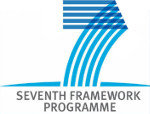A general Markov chain approach for disease and rumour spreading in complex networks
de Arruda, G.F. ; Rodrigues, F.A. ; Rodriguez, P.M. ; Cozzo, E. ; Moreno, Y. (Universidad de Zaragoza)
Resumen: Spreading processes are ubiquitous in natural and artificial systems. They can be studied via a plethora of models, depending on the specific details of the phenomena under study. Disease contagion and rumour spreading are among the most important of these processes due to their practical relevance. However, despite the similarities between them, current models address both spreading dynamics separately. In this article, we propose a general spreading model that is based on discrete time Markov chains. The model includes all the transitions that are plausible for both a disease contagion process and rumour propagation. We show that our model not only covers the traditional spreading schemes but that it also contains some features relevant in social dynamics, such as apathy, forgetting, and lost/recovering of interest. The model is evaluated analytically to obtain the spreading thresholds and the early time dynamical behaviour for the contact and reactive processes in several scenarios. Comparison with Monte Carlo simulations shows that the Markov chain formalism is highly accurate while it excels in computational efficiency. We round off our work by showing how the proposed framework can be applied to the study of spreading processes occurring on social networks.
Idioma: Inglés
DOI: 10.1093/comnet/cnx024
Año: 2018
Publicado en: JOURNAL OF COMPLEX NETWORKS 6, 2 (2018), 215-242
ISSN: 2051-1310
Factor impacto SCIMAGO: 0.608 - Applied Mathematics (Q1) - Computational Mathematics (Q1) - Management Science and Operations Research (Q1) - Control and Optimization (Q1) - Computer Networks and Communications (Q1)
Financiación: info:eu-repo/grantAgreement/ES/DGA/FENOL-GROUP
Financiación: info:eu-repo/grantAgreement/EC/FP7/317532/EU/Foundational Research on MULTIlevel comPLEX networks and systems/MULTIPLEX
Financiación: info:eu-repo/grantAgreement/ES/MINECO/FIS2014-55867-P
Tipo y forma: Article (Published version)
Área (Departamento): Área Física Teórica (Dpto. Física Teórica)
 All rights reserved by journal editor
All rights reserved by journal editor
Exportado de SIDERAL (2019-11-27-15:48:40)
Visitas y descargas
Idioma: Inglés
DOI: 10.1093/comnet/cnx024
Año: 2018
Publicado en: JOURNAL OF COMPLEX NETWORKS 6, 2 (2018), 215-242
ISSN: 2051-1310
Factor impacto SCIMAGO: 0.608 - Applied Mathematics (Q1) - Computational Mathematics (Q1) - Management Science and Operations Research (Q1) - Control and Optimization (Q1) - Computer Networks and Communications (Q1)
Financiación: info:eu-repo/grantAgreement/ES/DGA/FENOL-GROUP
Financiación: info:eu-repo/grantAgreement/EC/FP7/317532/EU/Foundational Research on MULTIlevel comPLEX networks and systems/MULTIPLEX
Financiación: info:eu-repo/grantAgreement/ES/MINECO/FIS2014-55867-P
Tipo y forma: Article (Published version)
Área (Departamento): Área Física Teórica (Dpto. Física Teórica)
Exportado de SIDERAL (2019-11-27-15:48:40)
Permalink:
Visitas y descargas
Este artículo se encuentra en las siguientes colecciones:
Articles > Artículos por área > Física Teórica
Record created 2018-11-07, last modified 2019-11-27
